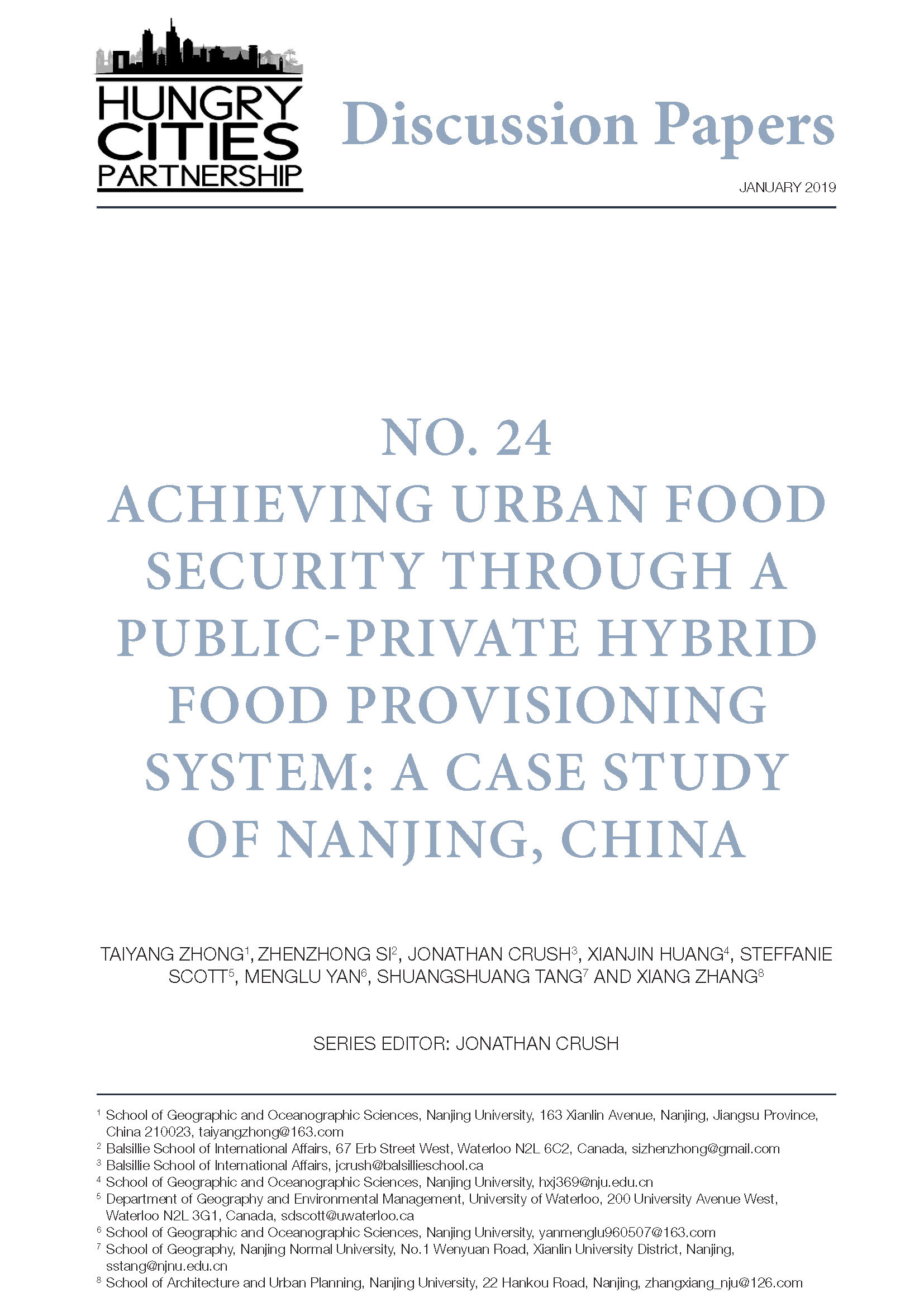Private and public markets are two models of urban food retailing governance. This paper examines the public-private hybrid model of urban food provisioning system and its governance in Nanjing, China. Based on data from surveys, non-structured interviews, and bibliographical material analysis, we examine the public-private hybrid model and its linkages with urban food security. Our analysis shows that the public-private hybrid model of food markets and its governance ensures a relatively high-level urban food security in Nanjing. We argue that the hybrid food market governance system effectively integrates public and private capital into a government-supported and regulated, small-business-based system in both food wholesale and retailing sectors. In the public-private hybrid system, wholesale markets and wet markets provide a physical “marketplace” for small-scale private food vendors to operate their business, while the private capital-based supermarkets is also integrated into the system of urban food provisioning. The paper reveals how the “crawling peg” policy and the regulation on the usage of marketplaces have ensured that the development of wet markets keeps pace with population growth. While the public-private hybrid system helps avoid market failure and government failure in food provisioning, it faces challenges such as reliance on fiscal inputs.

